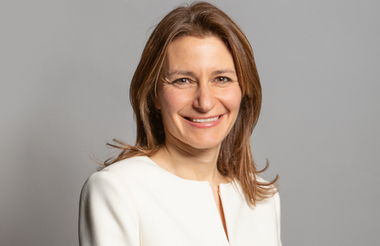The UK has a “squeamish” attitude to philanthropy, the culture secretary has said at the launch of a report that says donors are being put off by “harsh media attacks”.
Lucy Frazer was speaking at the launch of Giving Back Better: Unlocking the potential of philanthropy in the UK, which claims that charities are losing out on £3.4bn a year due to the “wealthiest in society not pulling their charitable weight”.
Frazer said: “Sometimes we’re reluctant to recognise wealth as a positive force in our society, and often worse, we denigrate those who succeed and those who give.”
The report calls for gift aid to be automated to make it simpler and easier to use and for the government to launch a national philanthropy strategy.
£3.4bn in ‘lost donations’
The report, authored by Shivani H Menon at Onward, states that 53% of all gift-aided donations were worth over £1m each and likely pledged by high net worth (HNW) individuals.
It says the overall value of HNW giving is about £8bn a year, equal to a fourth of all public donations.
However, the report says the “wealthiest in society are not pulling their charitable weight”, with the top 10% of households donating just half as much as a share of their incomes as the poorest 10%, representing almost £3.4bn in “lost donations”.
It adds that donations from the most affluent have not kept pace with the growth of their income and too few HNW people participate in philanthropy.
Half of all donations from the highest-earning households came from less than 5% of that cohort, and the bottom 70% of this group donated less than 10% of all donations.
“Such a reliance on this ‘civic core’ of regular donors is unsustainable,” the report states.
The geographic landscape of philanthropy is also heavily biased towards London, according to the report.
Indeed, the capital sees four times the value of donations made through gift aid compared to the UK average, and over a third of all charitable funding distributed by the largest philanthropic foundations was directed towards London.
‘HMRC should automate gift aid’
The report states in 2016, up to £564m worth of gift aid funding was left unclaimed, and only a third of all HNW donors claimed gift aid relief on their tax returns.
Almost 85% of those earning over £50,000 are unaware of gift aid rules, and 33% expressed frustrations that the gift aid process is too complex and time-consuming.
“HMRC should automate gift aid to make it simpler and easier to use. The complexity of gift aid is driving its underuse.
“An automated gift aid system would replicate the simplicity of the American model of charitable tax deductions while preserving the match received by charities,” it states.
Eliminating the “inconvenience” around using gift aid could increase donations by 18% or by approximately £520m.
Those on the highest incomes of £150,000 and above contributed 57% of all donations made through gift aid, compared to 28% from higher rate taxpayers and 15% from basic rate taxpayers and others.
Other recommendations
The report also recommends the Financial Conduct Authority (FCA) should make philanthropy a mandatory part of training for wealth advisors, and that the government should launch a national philanthropy strategy, led by a newly appointed philanthropy champion.
It adds the government should launch charitable action zones in places that experience a deficit of charitable activity and local leaders should create diaspora philanthropy funds to attract donations from successful “sons and daughters” of UK towns and cities.
Frazer said she is working to streamline gift aid, and working with the FCA and the Treasury to explore the possibility of greater philanthropic training and promoting stronger giving.
‘Adverse perceptions of philanthropy’
The report says that “adverse perceptions of philanthropy in wider society and harsh media attacks are also dissuading donors from giving and celebrating their giving”.
Frazer said at the event “it’s beyond doubt that British society is playing an important role and it’s already very generous” but the nation is “sometimes squeamish” about talking about giving.
“Sometimes we’re reluctant to recognise wealth as a positive force in our society, and often worse, we denigrate those who succeed and those who give,” she said.
Frazer said “I believe we need a collective attitudes shift” and criticised some scrutiny of philanthropy, saying “a desire for transparency is absolutely a healthy one but sometimes it discourages”.
“We need these individuals, these businesses, these groups, and it’s complacent to think otherwise,” she said.
“It has to start with applauding, not seeking to find the fault”.
She gave examples of the Science Museum and Shell, among others.
She said: “So let’s be unashamedly positive about philanthropy in this country, and let’s work together to make sure that can happen.”
Paul Ramsbottom, chief executive of the Wolfson Foundation said that sometimes “philanthropy itself is problematic” and that was incumbent on those involved to “get more positive messages” out.
Related Articles












